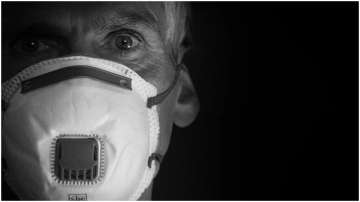The prevention measures for the deadly Covid-19 have been well established by now: It is mandatory to wear a mask whenever you step outside, wash your hands and keep them sanitized as much as possible, stay six feet away from any other human contact and stay home as much as possible. Now, bringing in a new perspective to coronavirus prevention, Dr. Erin Bromage said that one should be more cautious in crowded indoor spaces than outdoors. Dr. Erin Bromage is a comparative immunologist and professor of biology at the University of Massachusetts Dartmouth.
The biologist, in an interview with CNN, talked about how the virus spreads more rapidly in a noisy environment and said, "It comes down to the concentration of the virus in the air and the length of exposure. In larger spaces with better ventilation or outdoors, the concentration of the virus can be diluted in the larger volume of the air. The lower the virus burden in the air, the longer you can be in that environment before receiving an infectious dose".
When asked about the difference between sneezing, talking loudly and singing in terms of virus transmission, Dr. Erin Bromage said, " Respiratory droplet emission follows this sequence. Talking loudly emits a lesser amount of droplets than singing. Sneezing emits the most. The more force by which a sound leaves your mouth, the more respiratory particles are emitted, and they travel a further distance".
